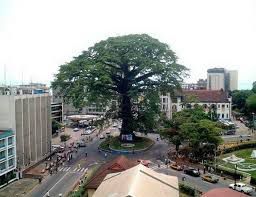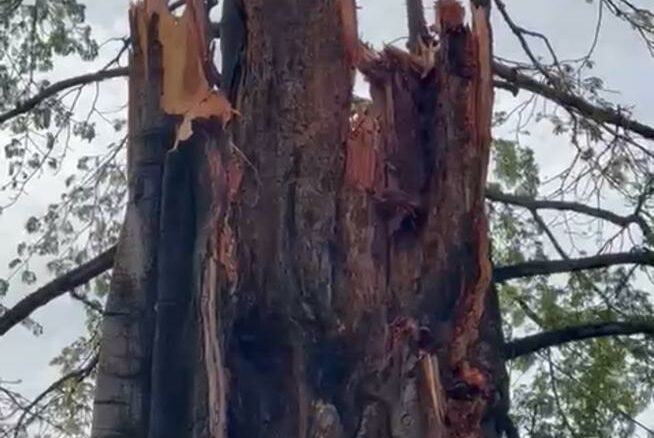The Majestic Journey of Freetown’s Beloved Cotton Tree


From Roots to Sail: The Majestic Journey of Freetown’s Beloved Cotton Tree
In a fateful turn of events last night, a hush fell over the streets of Freetown as the historic symbol of Sierra Leone’s capital, the iconic Cotton Tree, met its demise after standing tall for centuries. The majestic Ceiba pentandra, which had witnessed the birth and growth of a nation, finally succumbed to the passage of time.


As news of this profound loss spread, an air of sorrow and reflection settled upon the city. The Cotton Tree had long been cherished as a powerful testament to the indomitable spirit of those who had fought for their freedom and found solace in Sierra Leone’s welcoming shores. Its branches had provided shade to many, a meeting point for conversation and celebration, and a living reminder of the nation’s history.
In the wake of this irreplaceable loss, the question arose: How could the legacy of the Cotton Tree be preserved and celebrated in a way that befits its historical significance? After much contemplation, an extraordinary idea emerged—one that would encapsulate the essence of the Cotton Tree’s remarkable journey and offer a lasting tribute to its memory.
It is proposed that the mighty trunk of the fallen Cotton Tree be transformed into a grand boat, meticulously carved and sculpted by skilled artisans. This monumental vessel, evoking the resilience and fortitude of those who sought refuge beneath its branches, would serve as a testament to the Cotton Tree’s enduring legacy.
The carved boat, when completed, would be raised on a specially constructed platform within the hallowed halls of the Sierra Leone Museum. Here, it would stand as a symbol of unity, freedom, and the nation’s collective heritage. Visitors from far and wide would have the opportunity to marvel at this magnificent work of art, paying homage to the tree that had once anchored the city and bore witness to history.
Just as the Cotton Tree had sheltered the free Africans who arrived on Sierra Leone’s shores, the boat would serve as a metaphorical vessel, carrying their stories and the spirit of resilience throughout time. It would be a powerful reminder of the struggles and triumphs that shaped the nation and would inspire future generations to embrace their heritage and forge their own paths.
The decision to transform the Cotton Tree into a monumental boat is a poignant one, as it encapsulates both the past and the future. It would serve as a visual representation of the nation’s journey—from the roots of its history to the sails of progress. It would be a testament to the unyielding spirit of the people, forever carrying the legacy of the Cotton Tree forward.
Let us rally behind this proposal, as it offers a profound and fitting conclusion to the life of the iconic Cotton Tree. Together, we can honor the tree’s memory, ensuring that its story continues to be told for generations to come. The boat will stand as a timeless testament to the indomitable spirit that thrives in the hearts of the people of Sierra Leone—an enduring symbol of hope, resilience, and unity.
Recent Posts
SLPPNA Convention 2025 Election Disputes Shake Leadership
Three SLPPNA chapter elections were annulled, raising allegations of manipulation by Chairman Pessima as he…
SLPP North America Leadership Twist
Explore the behind-the-scenes politics of SLPP North America as Chairman Pessima maneuvers for a second…
President Bio Expands Sierra Leone’s UNIDO Partnership in Key Sectors
Sierra Leone’s President Julius Maada Bio reinforces the nation's collaboration with UNIDO, aiming to drive…
First Lady Fatima Bio Honored at London Political Summit
Dr. Fatima Maada Bio, First Lady of Sierra Leone, was honored at the 9th Annual…
Bio Launches 5th Generation Justice Reform Strategy
New Brookfields Hotel, Freetown, Thursday, 12 September 2024 — Sierra Leone’s President, Dr. Julius Maada…
Sierra Leone and China Sign $50M SMART Project Agreement
Beijing, China, Tuesday, September 3, 2024. The Government of Sierra Leone and China National Technical…

